
Place-driven Practice
Running for just two weeks across various locations in greater Walyalup, the Fremantle Biennale: Sanctuary, seeks to invite artists and audiences to engage with the built, natural and historic environment of the region.
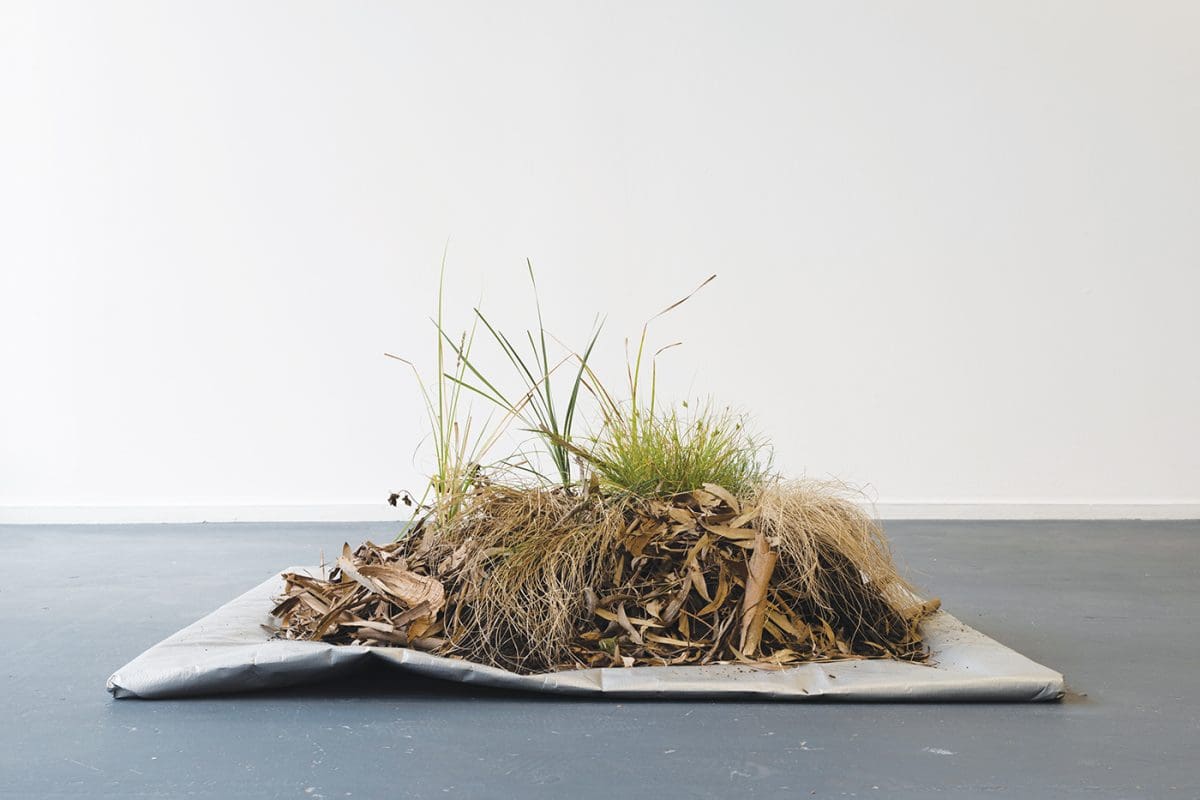
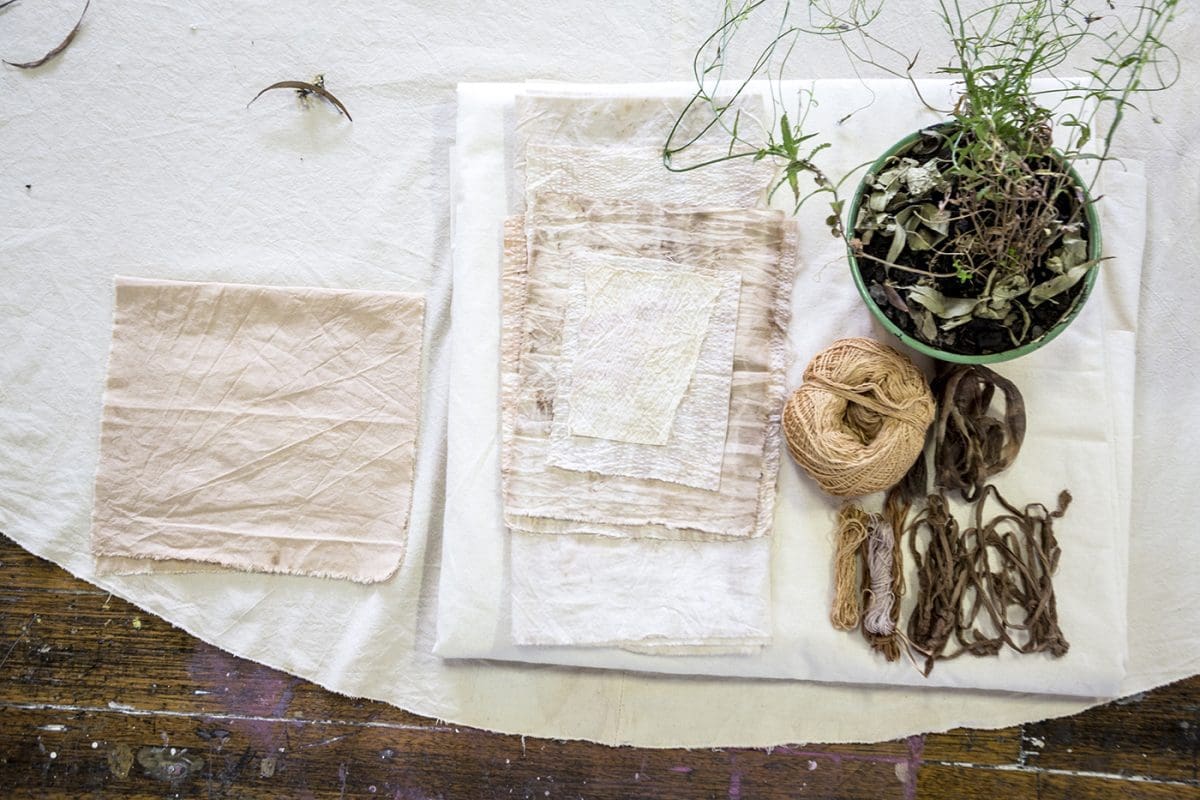
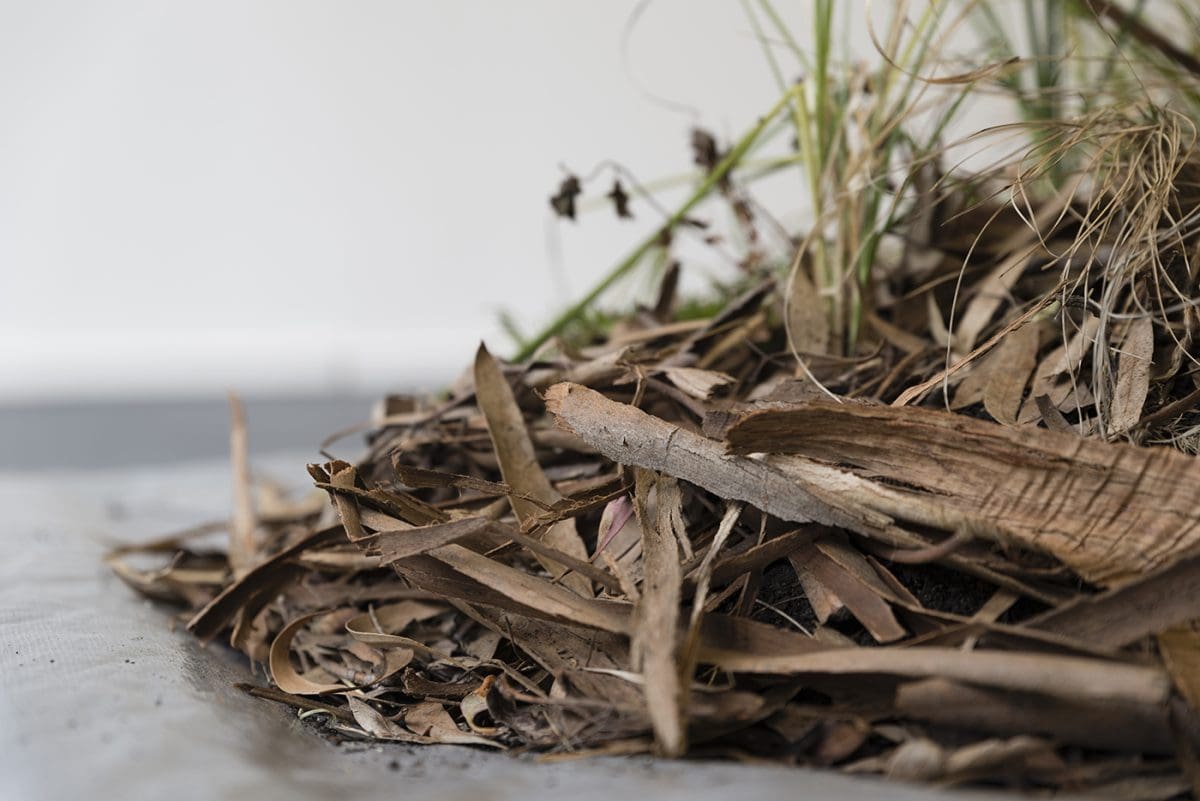
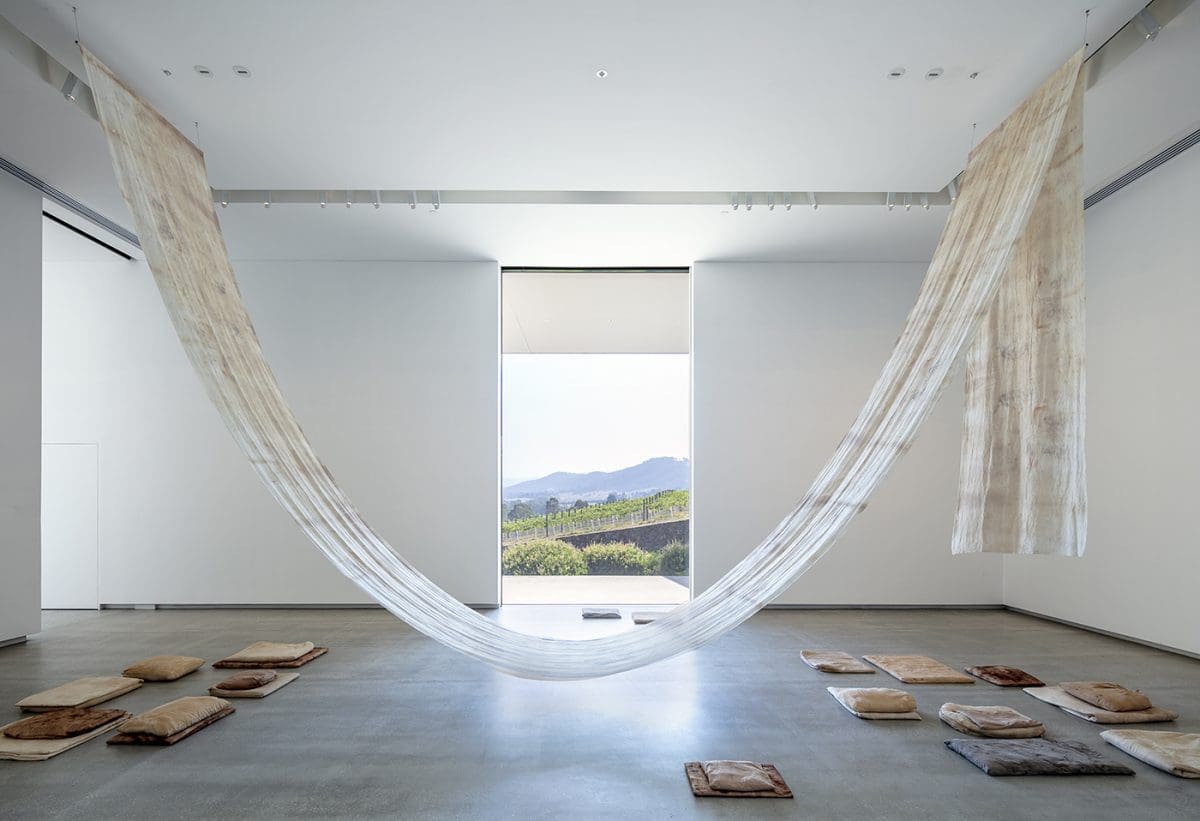
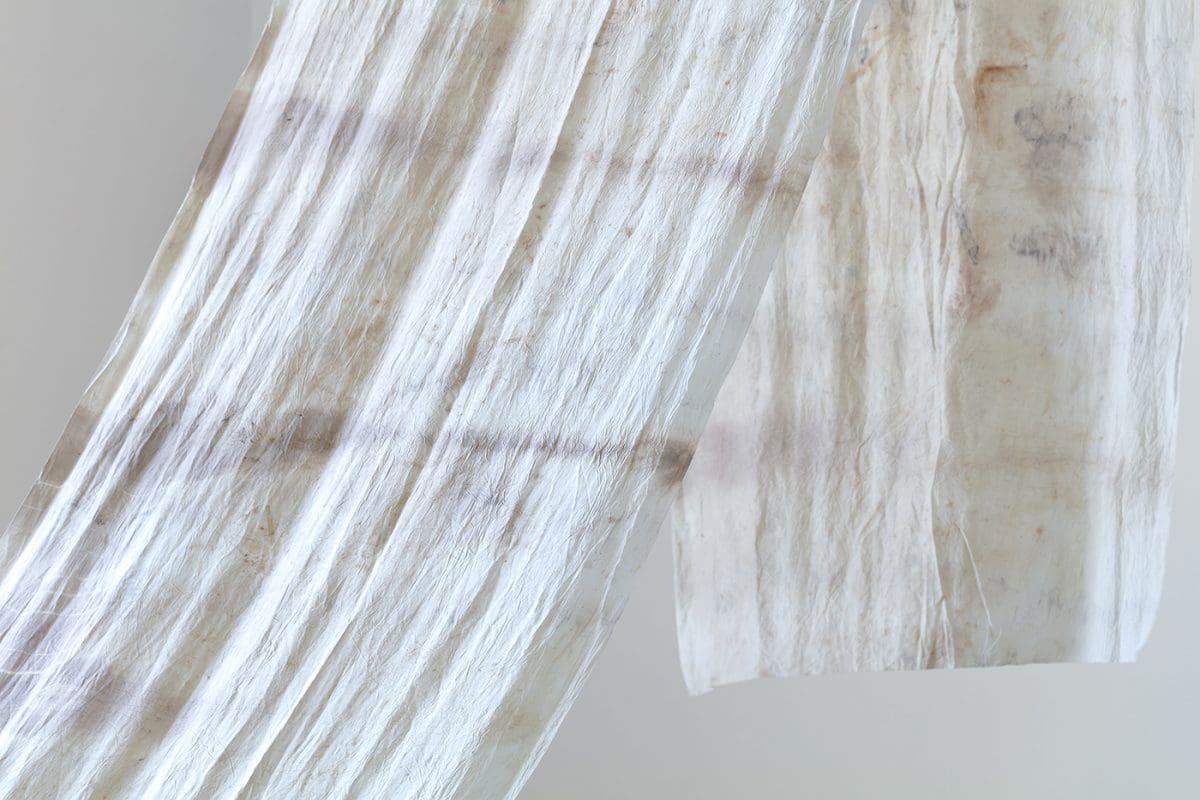
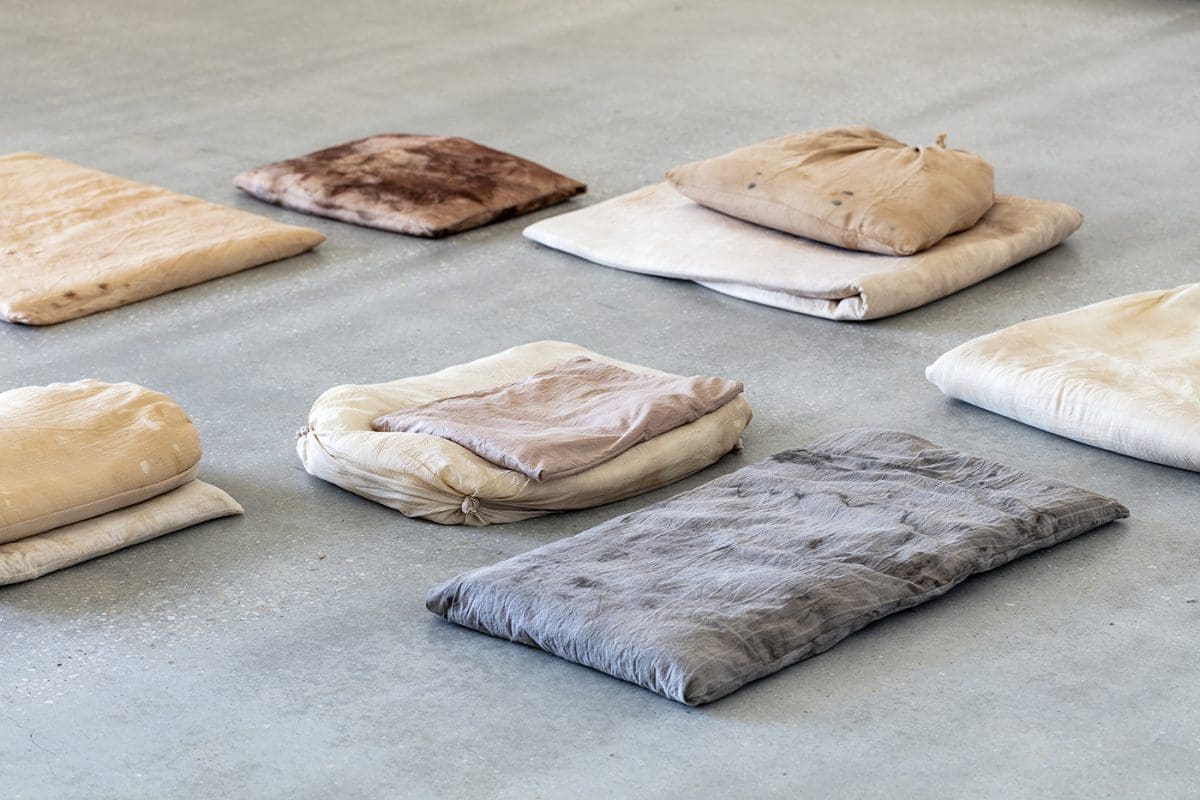
Cultivating a meditative flow and slow observation of the natural environment are bedrocks of Katie West’s fabric-based practice. In past exhibitions, dyed cloth has been draped on walls, hung from ceilings or made into cushions. Her dying method incorporates local plants, impressing the place of making into the works.
A residency in her mother’s Country (Roebourne, Western Australia) sparked West’s process. Here she came to learn of muhlu garwarrn, which translates to ‘cool time hot time’, the names of the seasons in the Yindjibarndi language. “Coming back from Roebourne I was thinking of how to embed the language of the everyday in my practice and also about how to work within the conditions of the seasons,” says West. “My dyeing practice is now a seasonal activity. In winter I do hot dyeing, which involves boiling up weeds and plants in a fire, and in summer I do solar dyeing, or I focus on sewing and working with the fabric.”
For her upcoming exhibition at Dominik Mersch Gallery in Sydney, West is dyeing cloth in her Melbourne backyard with plants gathered from the local area, including parks and by the creek. It’s an undertaking that is unhurried: “I want to be mindful about what’s going on around me during the dyeing process. What birds are present. What the weather is like. I want to, before I start dyeing, document the plants. Not necessarily to know every single plant that has gone in but to have a visual record.”
West’s gentle making system and engagement with place affects how audiences experience the works, and its politics, in the gallery space. There is a concern for decolonisation, the environment and putting forward Indigenous perspectives, and championing a closer and more caring relationship with nature. “From early on I’ve been thinking about decolonisation and how many people, mainly non-Indigenous people, are unsure of how to deal with these conversations,” she says. “My intention is to associate calm with these discussions. They needn’t be scary. These are conversations about our future as well as our past and present, and I believe they are necessary for finding ways to live together and live well with Country.”
Katie West
Dominik Mersch Gallery
16 August – 1 September
This article was originally published in the July/August 2019 print edition of Art Guide Australia.